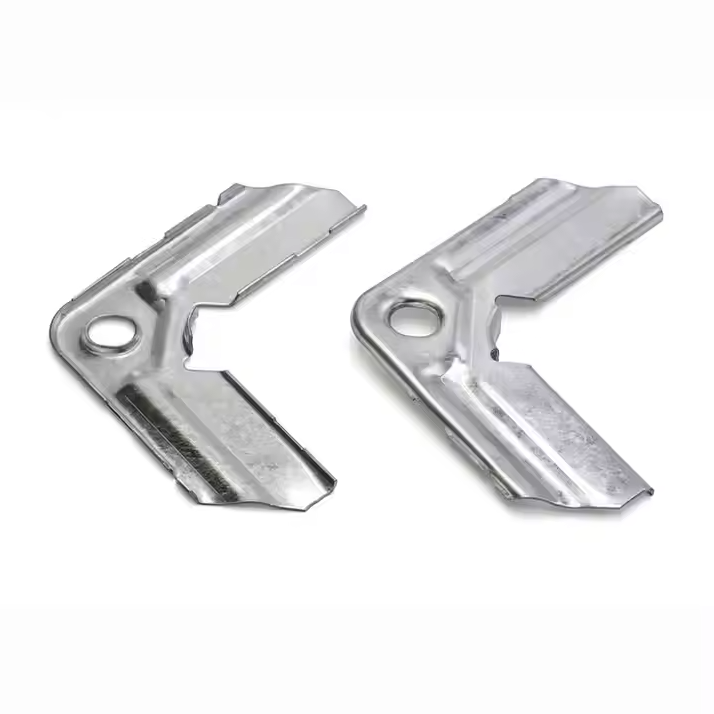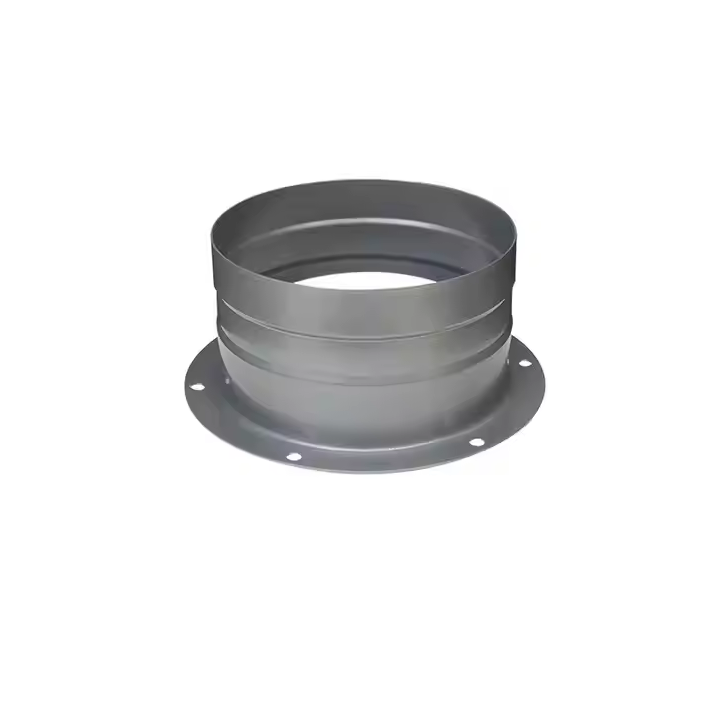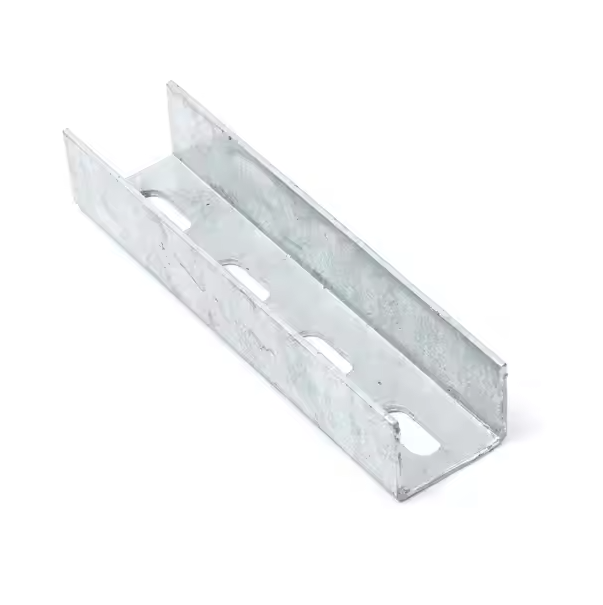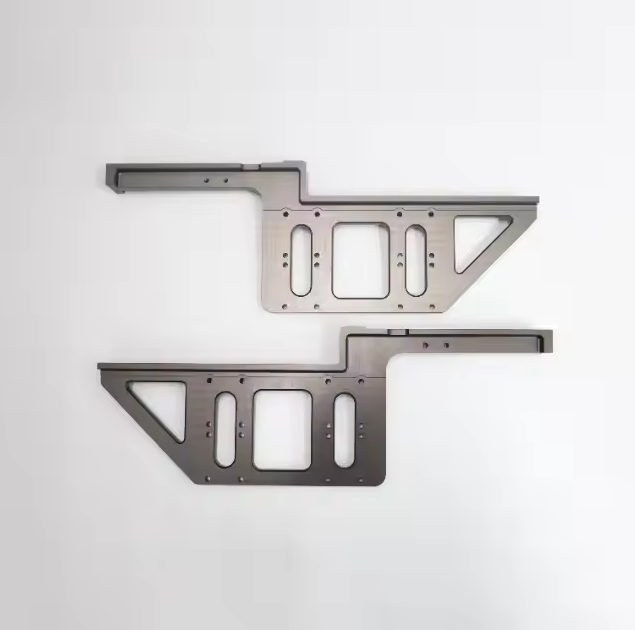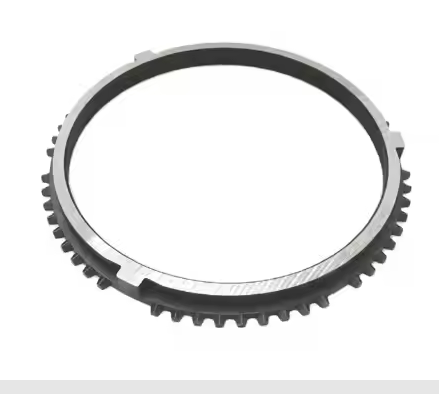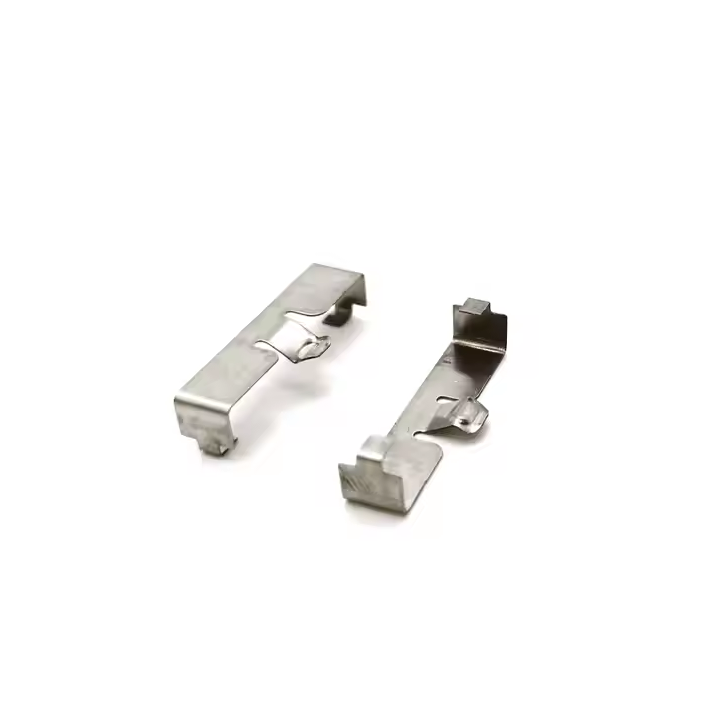In the field of modern industrial manufacturing, high-end machinery manufacturing factories play a vital role. With the continuous development of the global economy and the continuous advancement of technology, the market demand for high-precision and high-quality mechanical products is increasing. These products are widely used in a variety of high-tech industries such as aerospace, automobile manufacturing, precision instruments, and energy. Therefore, high-end machinery manufacturing factories not only need to have superb technical capabilities, but also must rely on a complete set of efficient production systems and advanced equipment and facilities to meet the increasingly complex and diverse manufacturing needs.
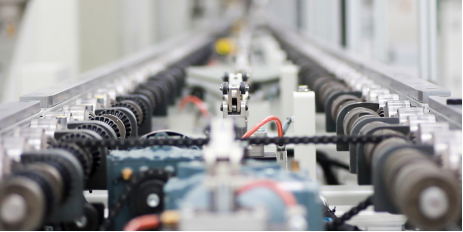
1. High-precision equipment and advanced manufacturing technology
CNC machine tools (CNC machine tools): High-precision CNC machine tools (such as milling machines, lathes, and drilling machines) are the core equipment of high-end machinery manufacturing factories. They can achieve complex processing tasks such as precision machining, engraving, cutting, etc.
Laser cutting machine: used for high-precision cutting and engraving, especially suitable for high-precision machining of irregular shapes.
Electric discharge machine (EDM): used for machining hard metals that are difficult to cut or precision parts with complex shapes, especially suitable for mold and tool manufacturing.
Additive manufacturing (3D printing): Some high-end factories use 3D printing technology to manufacture complex prototypes or small batches of parts, which is particularly suitable for prototyping and customized production of precision parts.
High-precision measuring equipment: such as three-coordinate measuring machines (CMM), laser interferometers, etc., to ensure the accuracy and quality of parts.
Automated production lines: Improve production efficiency and reduce human errors through automated equipment such as robots and automatic feeding systems.
2. Precision machining and assembly technology
Precision machining technology: High-end machinery manufacturing factories usually have a variety of precision machining technologies, including grinding, polishing, electroplating, coating, etc. By precisely controlling each process, ensure that the parts meet the required tolerance requirements.
Precision assembly: High-end factories usually have precision assembly workshops, and special tools and instruments are used during the assembly process to ensure the accurate installation of parts and components and reduce assembly errors.
Parts cleaning and protection: Parts will be strictly cleaned before assembly to prevent dust, oil, etc. from affecting accuracy. At the same time, protective measures (such as anti-static treatment, surface coating, etc.) can prevent parts from being damaged during storage and transportation.
3. R&D and design capabilities
CAD/CAM design system: Computer-aided design (CAD) and computer-aided manufacturing (CAM) systems are basic tools for high-end machinery manufacturing plants. CAD is used to design and optimize parts, and CAM is used to directly generate the processing programs required for production.
CAE simulation analysis: Computer-aided engineering (CAE) simulation tools can help analyze stress, temperature, fluid mechanics and other problems that products may encounter during actual use, and optimize the design.
Rapid prototyping: Use rapid prototyping technology (such as 3D printing) to verify the design, shorten the product development cycle, and ensure the feasibility of the design solution.
Customized design: In the face of special needs or complex products, customized design can help customers obtain more competitive solutions.
4. High-quality materials and supply chain management
High-quality raw materials: High-end machinery manufacturing requires the use of high-performance materials, such as high-strength alloys, stainless steel, titanium alloys, composite materials, etc. The selection of these materials directly affects the performance, life and reliability of the product.
Supply chain management: High-end factories need to have a good supply chain management system to ensure timely and stable supply of raw materials and maintain high quality standards. The supply chain system must also be flexible and able to cope with fluctuations in order demand and urgent customization needs.
5. Quality control and testing system
Total quality management (TQM): High-end machinery manufacturing factories usually implement total quality management to ensure that every link from design, raw material procurement, production, assembly to delivery meets quality standards.
Process monitoring and real-time feedback: Through sensors, machine vision systems and other technologies, real-time monitoring of key parameters in the production process (such as temperature, pressure, cutting force, etc.) to ensure stable product quality.
Laboratory and testing equipment: The factory needs to have a laboratory and a variety of testing equipment (such as hardness testers, tensile testing machines, impact testing machines, etc.) to test the physical properties and durability of the products.
Certification system: High-end machinery manufacturing factories usually follow international quality management system standards, such as ISO 9001, ISO 14001, TS16949, etc., to ensure that product quality meets international standards.
6. Automation and intelligent systems
Industrial robots and automation equipment: High-end machinery manufacturing factories will widely use industrial robots for welding, handling, assembly and other operations to improve production efficiency and consistency.
Intelligent production scheduling: Through intelligent management systems such as MES (manufacturing execution system) and ERP (enterprise resource planning), factories can monitor production progress, schedule resources in real time, and analyze production data to optimize production processes.
Internet of Things and Big Data: Through the Internet of Things technology, the interconnection between devices is realized, various data in the production process (such as temperature, humidity, working status, etc.) are collected, and big data analysis is used to optimize production and maintenance strategies.
7. Environment and safety management
Environmental protection: High-end machinery manufacturing plants need to comply with environmental regulations and take effective measures to control pollutants such as waste gas, wastewater, and noise to ensure environmental protection requirements during the production process.
Safety management: High-end factories carry out strict safety management in terms of equipment, personnel, and environment. For example, employees must receive safety training, and the workshop is equipped with necessary safety facilities (such as emergency shutdown devices, fire extinguishing systems, monitoring systems, etc.).
Energy management and sustainable development: Reduce energy consumption by adopting energy-saving technologies, optimizing production processes, and reducing the burden on the environment through renewable energy and other means.
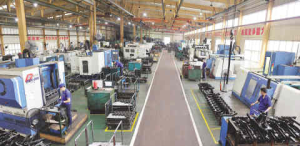
8. Talent and technical team
High-quality talents: High-end machinery manufacturing factories need highly qualified engineers, technicians and managers who can carry out efficient production and technological innovation.
Technical training and R&D: Continuous technical training and R&D investment are the key to maintaining the competitiveness of the factory. Factories usually set up special R&D departments to develop new products and improve existing technologies.
Interdisciplinary cooperation: Modern machinery manufacturing often requires interdisciplinary technology integration, such as expertise in multiple fields such as mechanical engineering, electrical engineering, automation, and materials science. Therefore, the factory needs a multidisciplinary team to collaborate.
9. Customer service and after-sales support
Customized Services: High-end machinery manufacturing factories usually provide customized services to meet customers' specific needs, such as customized design, product optimization, etc.
Quick Response and After-Sales Support: Provide timely technical support, maintenance services and spare parts supply to ensure the stable operation of customer equipment and improve customer satisfaction and loyalty.
10. Innovation and continuous improvement
Technological innovation: Continuous technological innovation is the key to maintaining the competitiveness of the factory. The factory needs to continuously explore new technologies, such as artificial intelligence, robotics, advanced manufacturing processes, etc., to improve product quality and production efficiency.
Continuous improvement: High-end machinery manufacturing factories need to establish a continuous improvement mechanism, such as through lean production, six sigma and other management methods, to continuously optimize the production process, improve efficiency and reduce costs.
Building a high-end machinery manufacturing plant requires not only high-precision production equipment and advanced technical support, but also a complete quality control system, intelligent management, environmental protection and safety measures. The factory needs to rely on strong R&D capabilities, a high-quality technical team, precise production technology and high-quality material supply to stand out in the fierce market competition and achieve high-quality and high-precision manufacturing goals.
Xuanmin has first-class equipment and technology, and cooperates with all parts of the world to process metal products. We believe that through effective communication and supervision of production between the two parties, we can build a perfect high-end machinery manufacturing plant. Contact us to start cooperation!
